To realise the technically complex project, the Deutsches Museum is collaborating with the Development Center X-ray Technology EZRT at the Fraunhofer Institute for Integrated Circuits IIS. Depending on the size and material density of the ciphering devices, different computed tomography equipment is used. Due to the penetrating properties of X-rays, the ciphering devices can be scanned together with their (wooden) cassings and the wrapping required for transport.
The largest cipher units are scanned in the XXL-CT facility, that was already used for the CT scan of the Messerschmitt Me163.
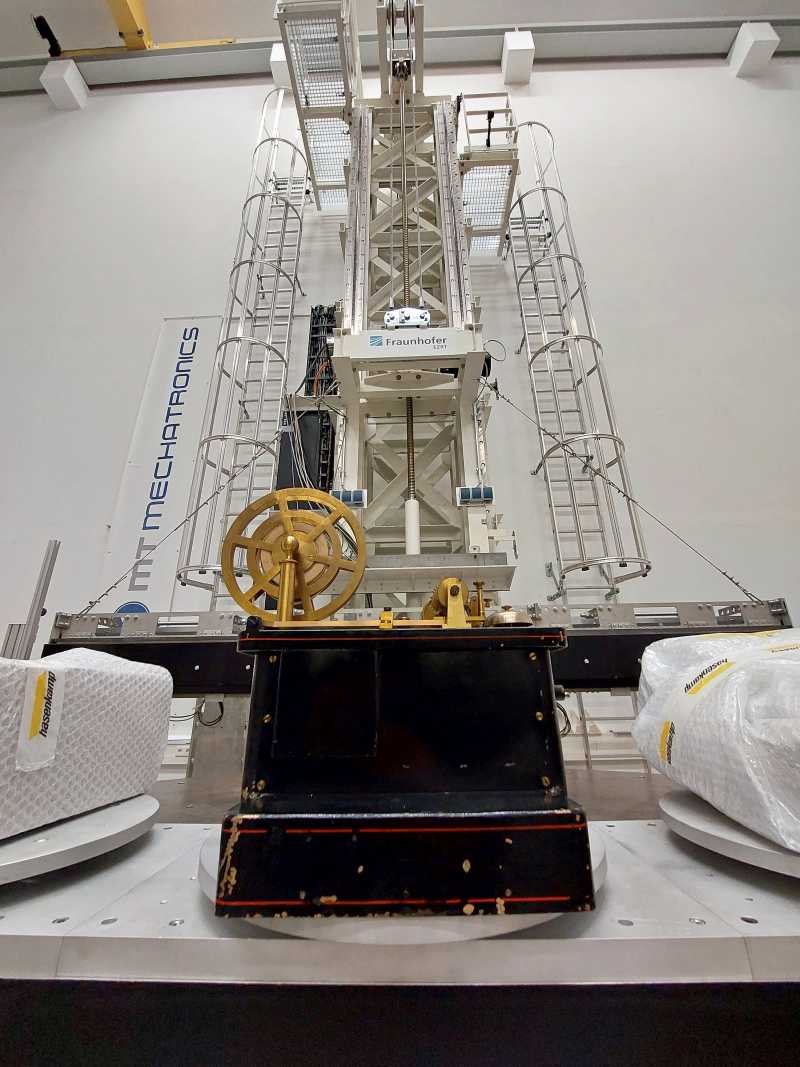
XXL-CT facility of Fraunhofer IIS. Image: Deutsches Museum | Sebastian Linstädt
The spatial resolution ranges between 0.7 and 0.1 mm, at the technical limit for objects with a high metal percentage of this size.
Cross section of a keyboard key from a Lorenz Schlüsselzusatz 42 (resolution: 0.67mm)...
... and from an Enigma I (resolution: 0.18 mm)
The scanning process produces hundreds to thousands of X-ray images, which enable a digital reconstruction of the objects. Unlike classic X-ray images, the 2D sectional images from CT scanning can be displayed with voxel accuracy (voxel= pixel in 3D space) at any position and angle without other 2D layers in front or behind. Thanks to digital tools, various measurements (length, angle, porosity, etc.) can be made.
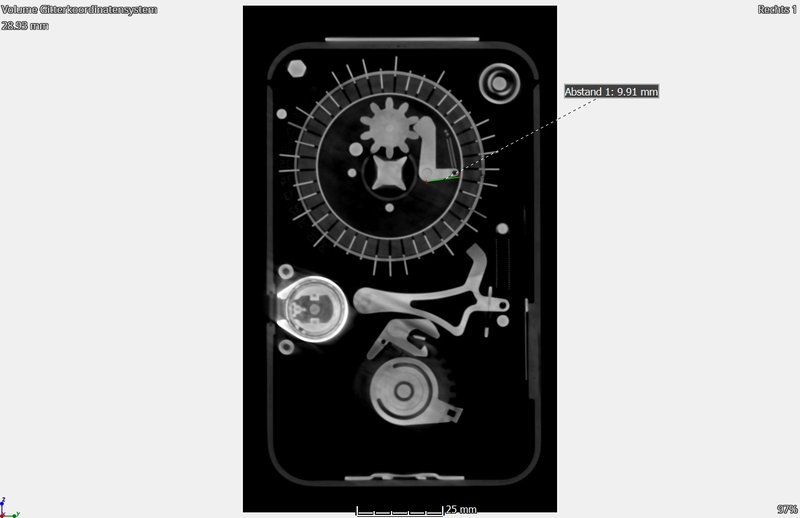
2D-CT cross section of a Hagelin CD-57, Inv.-Nr.: 2018-389
CT processing programmes calculate and render 3D volumes from the reconstructed X-ray images. Grey values are assigned to the different materials by the scanning process, which allows the user to fade different materials in or out. Ixtensive modification of CT data is possible with regard to opacity, colourfulness, position etc.
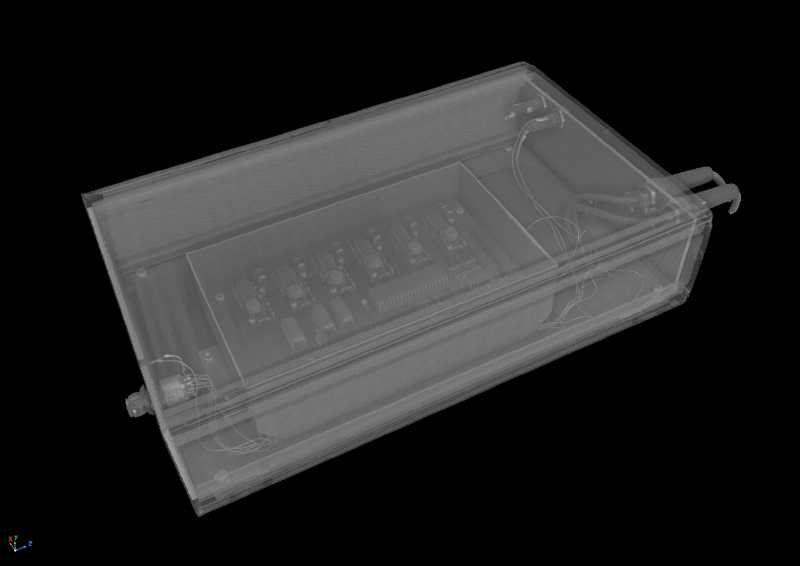
3D-CT-Image of TST 970 with semi-transparent casing, Inv.-Nr.: 2017-426
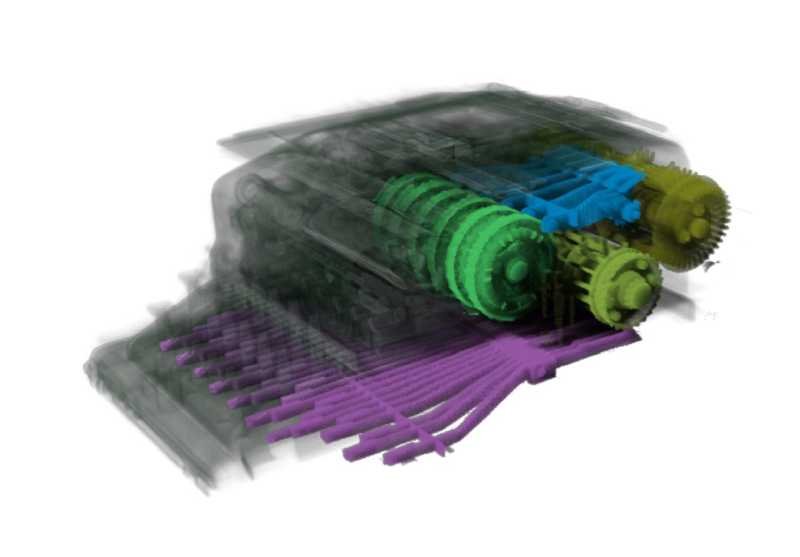
3D-CT-Image, cut with colourized and segmented parts from a Schlüsselgerät 41,
Image: © Fraunhofer IIS
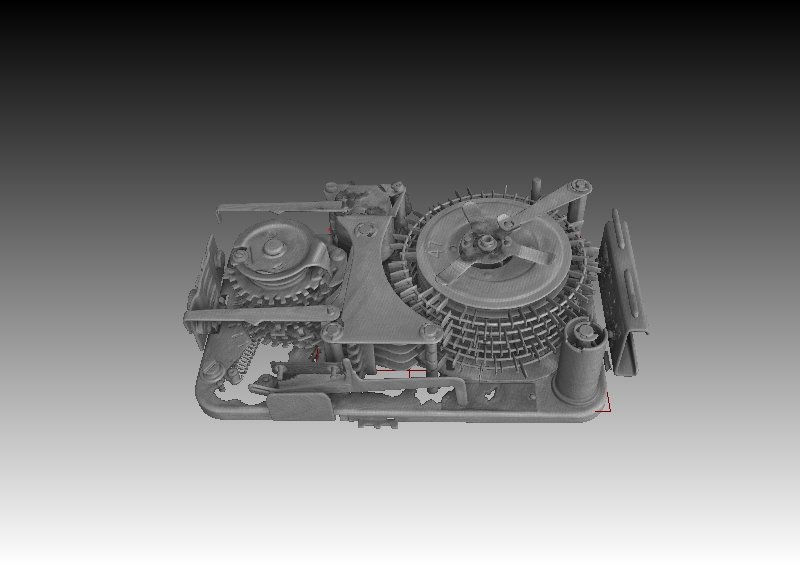
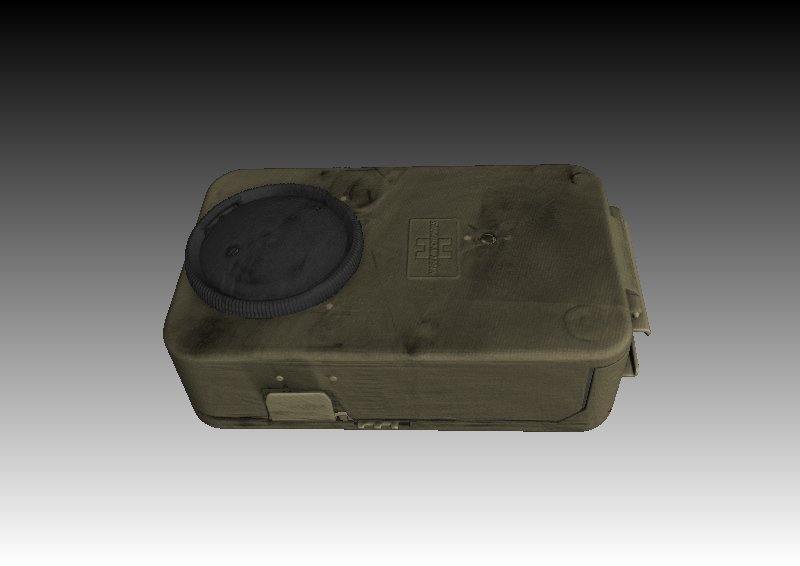
3D-CT-Image of a Hagelin CD-57, with and without casing, Inv.-Nr.: 2017-387

